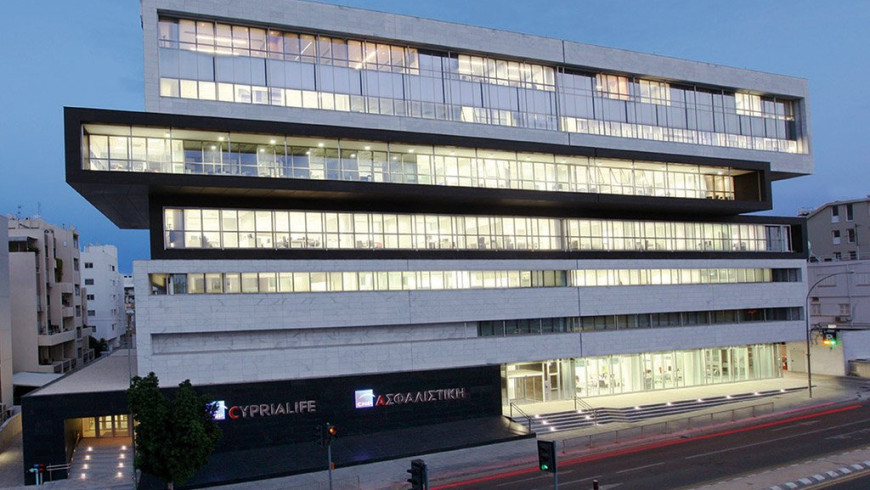
The insurance companies sector will be under strong pressure, the Central Bank supports.
Already, in the first half of 2011, its net profits fell 97.6% compared to 2010.
This decline is attributable to a life insurance company, which suffered significant losses from investments due to the sale of Greek government bonds.
The negative results in life sector affected negatively the total net profit index (after tax) as a percentage on the equity, which dropped to 0.3% compared to 11.2% in 2010.
In its latest economic bulletin, the Central Bank reported that the deterioration of the domestic macroeconomic climate together with the uncertainty in the markets will continue to affect negatively the prospects of the insurance sector.
Specifically, the risk of macroeconomic environment, which largely affects the insurance and financial risks, is higher than last year’s review of the sector.
It is noted that the deteriorating economic sentiment is a significant risk to both the new and existing insurance contracts.
“It is possible that the anticipated slowdown in the insurance products demand and the rate of cancellation and acquisition of contracts be increased further. This might hit further the life sector due to its sensitivity in the prevailing economic conditions”, it said.
According to the CB, “given the adverse domestic macroeconomic conditions, the insurance risks might put pressures on the profitability and capital adequacy of the insurance companies as well as on their liquidity”.
This might entail an increase in premiums so that they improve their results.
Risks
As for the risks that the insurance companies face, the market risk is exceptionally increased since the debt crisis concerns boost the volatility in the markets and the downward pressures on the market values of almost all assets.
Specifically, the increased risk of securities and interest rate risk and margin (bonds) will continue to adversely affect the values of their investment portfolio.
The severity of the economic conditions, however, is risky for all assets, including the risk of a significant drop in the value of properties.
In general, a possible drastic decrease in the value of assets is expected to affect profitability and the capital adequacy of the sector.
Also, the extended low interest rate environment, although a positive impact on the valuation of specific obligations, is more aggravating than favourable.
The credit risk is higher than last year’s due to the bonds.
The higher credit risk and its subsequent diffusion to the corporate sector, have increased the counter-party risk,
Specifically, under conditions of an extreme credit event, the direct or indirect connection of the insurance companies to the banking sector and more than that the reinsurance sector makes this sector vulnerable to the credit events risk.
Also, keeping the cash available and equivalent of the insurance companies exclusively in deposits in domestic banks increases the concentration risk and the counter-party credit risk.
However, according to the Central Bank, the insurance companies are reported to have adequate liquidity so as to meet the liquidity needs on time.
Also, a significant part of their investment portfolio is comprised of tradable titles, which may be sold immediately in case of an emergency. It is noted that the potential liquidity pressures on the insurance sector – although restricted – remains appreciable.
Due to the concentration of their deposits in banks and their placements in banking stocks, bonds and state bonds, the banking sector and financial markets become potential channels of transmission of risks to the insurance sector.
Determinant factors to mitigate those risks are the course of the debt crisis and the prospect of consolidation of the public finances.
At the end of June 2011, the domestic insurance sector was composed of 34 insurance companies based in Cyprus, 26 of which are operating in Cyprus, 8 outside, 2 are branches/subsidiaries of foreign insurance companies based on a EU member state as well as 380 insurance companies authorized to provide services freely.
Their total assets in late June 2011 stood at €2.9 billion, showing a decline of 2.6% compared to 2010.
Already, in the first half of 2011, its net profits fell 97.6% compared to 2010.
This decline is attributable to a life insurance company, which suffered significant losses from investments due to the sale of Greek government bonds.
The negative results in life sector affected negatively the total net profit index (after tax) as a percentage on the equity, which dropped to 0.3% compared to 11.2% in 2010.
In its latest economic bulletin, the Central Bank reported that the deterioration of the domestic macroeconomic climate together with the uncertainty in the markets will continue to affect negatively the prospects of the insurance sector.
Specifically, the risk of macroeconomic environment, which largely affects the insurance and financial risks, is higher than last year’s review of the sector.
It is noted that the deteriorating economic sentiment is a significant risk to both the new and existing insurance contracts.
“It is possible that the anticipated slowdown in the insurance products demand and the rate of cancellation and acquisition of contracts be increased further. This might hit further the life sector due to its sensitivity in the prevailing economic conditions”, it said.
According to the CB, “given the adverse domestic macroeconomic conditions, the insurance risks might put pressures on the profitability and capital adequacy of the insurance companies as well as on their liquidity”.
This might entail an increase in premiums so that they improve their results.
Risks
As for the risks that the insurance companies face, the market risk is exceptionally increased since the debt crisis concerns boost the volatility in the markets and the downward pressures on the market values of almost all assets.
Specifically, the increased risk of securities and interest rate risk and margin (bonds) will continue to adversely affect the values of their investment portfolio.
The severity of the economic conditions, however, is risky for all assets, including the risk of a significant drop in the value of properties.
In general, a possible drastic decrease in the value of assets is expected to affect profitability and the capital adequacy of the sector.
Also, the extended low interest rate environment, although a positive impact on the valuation of specific obligations, is more aggravating than favourable.
The credit risk is higher than last year’s due to the bonds.
The higher credit risk and its subsequent diffusion to the corporate sector, have increased the counter-party risk,
Specifically, under conditions of an extreme credit event, the direct or indirect connection of the insurance companies to the banking sector and more than that the reinsurance sector makes this sector vulnerable to the credit events risk.
Also, keeping the cash available and equivalent of the insurance companies exclusively in deposits in domestic banks increases the concentration risk and the counter-party credit risk.
However, according to the Central Bank, the insurance companies are reported to have adequate liquidity so as to meet the liquidity needs on time.
Also, a significant part of their investment portfolio is comprised of tradable titles, which may be sold immediately in case of an emergency. It is noted that the potential liquidity pressures on the insurance sector – although restricted – remains appreciable.
Due to the concentration of their deposits in banks and their placements in banking stocks, bonds and state bonds, the banking sector and financial markets become potential channels of transmission of risks to the insurance sector.
Determinant factors to mitigate those risks are the course of the debt crisis and the prospect of consolidation of the public finances.
At the end of June 2011, the domestic insurance sector was composed of 34 insurance companies based in Cyprus, 26 of which are operating in Cyprus, 8 outside, 2 are branches/subsidiaries of foreign insurance companies based on a EU member state as well as 380 insurance companies authorized to provide services freely.
Their total assets in late June 2011 stood at €2.9 billion, showing a decline of 2.6% compared to 2010.













 3287.99
3287.99 1275.09
1275.09

